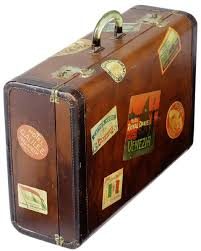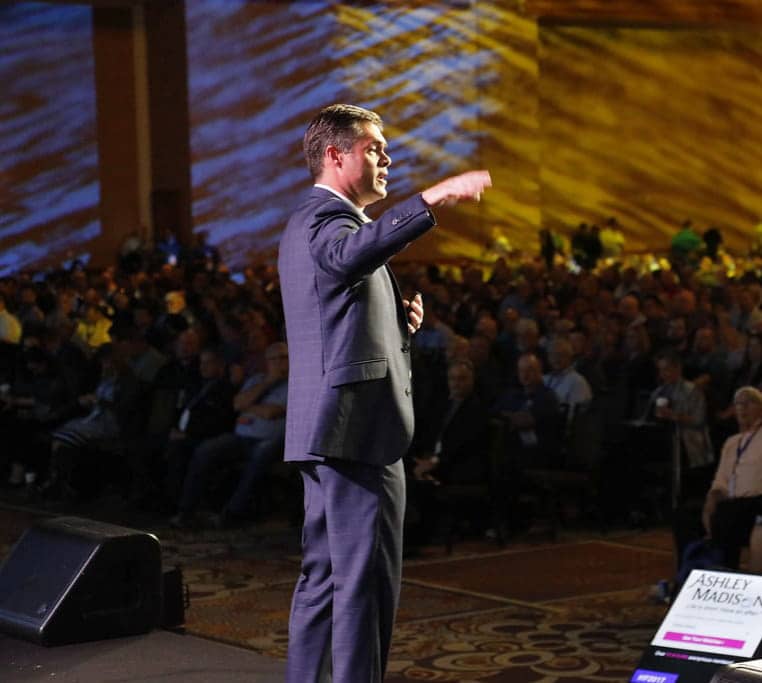Travel Safety Tips Part 3
 Welcome to the third (and longest!) part of our four-part series on travel safety. We’ve covered “Planning Your Trip” and what to do “Before You Go” Today we’ll go through the many important things to consider while you’re “On the Road”. Be sure to check back tomorrow for our final installment of what to do “When You Return”.
Welcome to the third (and longest!) part of our four-part series on travel safety. We’ve covered “Planning Your Trip” and what to do “Before You Go” Today we’ll go through the many important things to consider while you’re “On the Road”. Be sure to check back tomorrow for our final installment of what to do “When You Return”.
Travel Light: If you don’t have to take it with you, increase your safety and leave it at home. This includes:
Checkbooks: Do not carry checks or take only one or two for an emergency, placing them with your cash in your money belt. Checking account takeover is one of the simplest crimes to commit and one of the most devastating types of financial fraud from which to recover. The easy alternative? Use a credit card or cash.
Debit cards: You can reduce your vulnerability to having your checking account plundered while on vacation by leaving all debit cards (check cards) at home. Don’t be fooled into thinking that Debit/ATM cards are safe just because they have a PIN or password. Be aware, too, that debit cards don’t have the same financial fraud protections as most credit cards.
The Solution? Actually, you have two! You can get a nameless, travel-only ATM/debit card with a 4 digit pin from your bank. Or you can ask your bank for an ATM-Only debit card (it won’t work in stores, only at an ATM) and make sure your password isn’t seen by roaming eyes when you are at the ATM.
Better yet, use a credit card or cash. The exception to this is when you are traveling in a foreign country and your debit card is the most efficient way of obtaining cash from an ATM.
Excess credit cards: Every piece of identity you take with you creates more avenues for potential fraud. I recommend that if you are traveling with another adult, you each take one credit card. (If possible, take cards from two different credit card companies. That way, you each carry only one card that can be lost or stolen, but you have a backup card if the other person’s card is lost, stolen or shut down because of fraud). Make sure that your credit card company knows the dates and places you are traveling so that they don’t shut it down when charges are made out of town. Also, make sure you have a large enough credit line to cover your purchases while traveling. You can ask for a phone number you can call from overseas if your card doesn’t list one. The 800 number on the back of your card might not work outside the U.S.
Social Security card: It is not necessary to have your Social Security card while traveling (or at any time other than your first day of work with a new employer), so leave it locked up at home.
Bills: Don’t try to take bills to pay while traveling. Instead, schedule all payments before you go.
Identity Documents: Leave birth certificates, passports (unless travelling internationally), library cards, receipts, etc. at home while you travel. Anything you don’t absolutely need should be left at home locked in a fire safe. If you can travel with only a credit card, driver’s license and health insurance card (as long as it doesn’t have your SSN on it), you will be much safer. Also, don’t put all of your info on your luggage. A last name and phone number will suffice.
Boarding Passes: Tear up and throw away used boarding passes (or shred if you can). Those boarding passes so many of us leave behind in airplanes or hotels often contain full names and other personal information.
Excess digital gadgets: The more gadgets you bring, the more potential for theft. Keep it simple.
Guard your devices
Passcodes: Smartphones and tablets carry as much information as laptops. Turn on the auto-lock passcode to keep others out of your data. Also make sure that your laptop computer has long, strong, alpha-numeric password encryption(BitLocker for Windows, FileVault for Mac).
Public Access Internet Facilities: While using your laptop to access online banking or other password-protected services from Wi-Fi networks, be sure the Wi-Fi hotspots are secure. If you’re using a public computer in hotel business centers or cyber-cafes, never access any sensitive information. Key-loggers (software that can track your keystrokes) may be tracking you. Better yet, install tethering between your mobile phone and tablet or laptop so that you are surfing securely.
Ask for Privacy: Instead of leaving oodles of data exposed in your hotel room (a major source of theft), hang your privacy sign on the door and let house cleaning know that you do not want to be disturbed. Lowering traffic lowers risk.
Have a plan for a stolen phone: Enable your phone’s GPS locator and “wipe” function (if available). Many phones have a setting you can switch on that helps you locate the phone via GPS if it’s stolen. Similarly, the “wipe” feature will let you wipe your data clean if it’s stolen.
Social Media: Turn off your location settings and try to refrain from gloating about your glorious trip by posting pictures until you’ve returned safely home.
Use the hotel safe
I can’t emphasize enough the importance of using the in-room safes that are now a part of almost every hotel room. They are easy to use and significantly increase traveling safety (decreasing theft by cleaning staff and other travelers). In addition to your traditional items such as jewelry or extra cash, use them for:
All important devices: your laptop, cell phone, tablet, iPod, thumb drive, etc.
Passports: Unless you are traveling in a country where you it is mandatory to keep your passport with you at all times, lock it up in the safe the whole time you are staying at the hotel.
Other Identity Documents: Store your plane tickets, receipts, and any other identity documents (birth certificates, extra credit cards, visa, etc.) in the safe when not in use.
Beware of scams
Hotel credit card scam: The way this typically works is that while you are sleeping, you receive a call “from the hotel’s front desk”. The pleasant “night clerk” informs you their system has crashed and they need your credit card number to complete a night audit. Do not give them your information over the phone. If they don’t relent, walk down to the desk!
Message about fraud: If you get a phone call or e-mail about suspicious activity on your card, call the customer service number on the back of your credit card instead of automatically calling back the number on the message. That’s a common ploy by ID thieves to capture personal information. If the call was legitimate, you will be connected to the appropriate department.
Other Time-tested Tips
Mind the Lions at the Watering Hole: Increase your awareness in airports, hotels, conferences and restaurants. Remember, where there is a crowd, there is a pickpocket, just waiting for you to be too busy with your camera or map to notice their activities. Be on the lookout also for untrustworthy passengers on the plane, especially shoulder surfers who watch you enter login credentials, PINs, credit card numbers and other personal data on your laptop, smartphone or tablet in the hopes of catching something they can use later to steal your identity.
Carry it Safely: I recommend carrying all of your identity documents (passport, credit card, driver’s license, tickets, etc.) in a travel pouch that fits around your neck or your waste (and inside of your clothing). It is a minor inconvenience, but it lowers instances of pick pocketing and unintentional misplacement. Thieves have unbelievably nimble fingers that can slip into your pocket or purse undetected so here’s an essential habit to cultivate: just before you leave your hotel room (especially in cities), verify that your money pouch is securely fastened around your waist or neck, under your clothes.
Use a Backpack: When possible, carry laptops and other large identity-storing items in a backpack that stays zipped and on your back at all times. It is easy to set down a purse, book bag or piece of luggage while at a ticket counter or retail store. Backpacks, on the other hand, are easy to keep on our person at all times, and are harder to break into without alerting the wearer.
Watch Your Cards: When paying with a credit card in a restaurant, try to keep your eye on the card. If the server removes it from sight, they may be able to create a “clone” by using a portable card skimmer that will copy the information from the card’s magnetic strip. Many restaurants are now able to process the card at your table or you can take it to the register and observe the transaction.
ATM Machines: Use your “ATM Only” card (one that requires a PIN and does not contain a Visa or MasterCard logo) at ATM machines found at banks or credit unions that are in well-lit areas. Be sure to examine the ATM machine carefully for signs of tampering. Be on the lookout for anything that looks suspicious. Save all transaction receipts in a specific envelope to make it easy to reconcile your bank statement when you arrive home.
Use a Dedicated Travel E-mail Address: I shake my head every time when I see messages arrive from overseas via work e-mail accounts. If someone gets access to your work e-mail account, the amount of damage they could do to your livelihood is inestimable. Certainly there are times when you need to log in to your work account, but you will want to use caution in the extreme at those times.
My suggestion is to use a personal e-mail address when possible while traveling, one at which you store no sensitive information and at which a fake log-in won’t be disastrous, and communicate from that e-mail address exclusively. On occasion you will see addresses like johndoetravelemail@gmail.com; this travel-exclusive e-mail method can work quite well.
If you’re not using Bluetooth, turn it off: Some thieves can “hack” into your phone through Bluetooth, so if you’re not actively using it, turn it off!
John Sileo is an an award-winning author and keynote speaker on identity theft, internet privacy, fraud training & technology defense. John specializes in making security entertaining, so that it works. John is CEO of The Sileo Group, whose clients include the Pentagon, Visa, Homeland Security & Pfizer. John’s body of work includes appearances on 60 Minutes, Rachael Ray, Anderson Cooper & Fox Business. Contact him directly on 800.258.8076.





